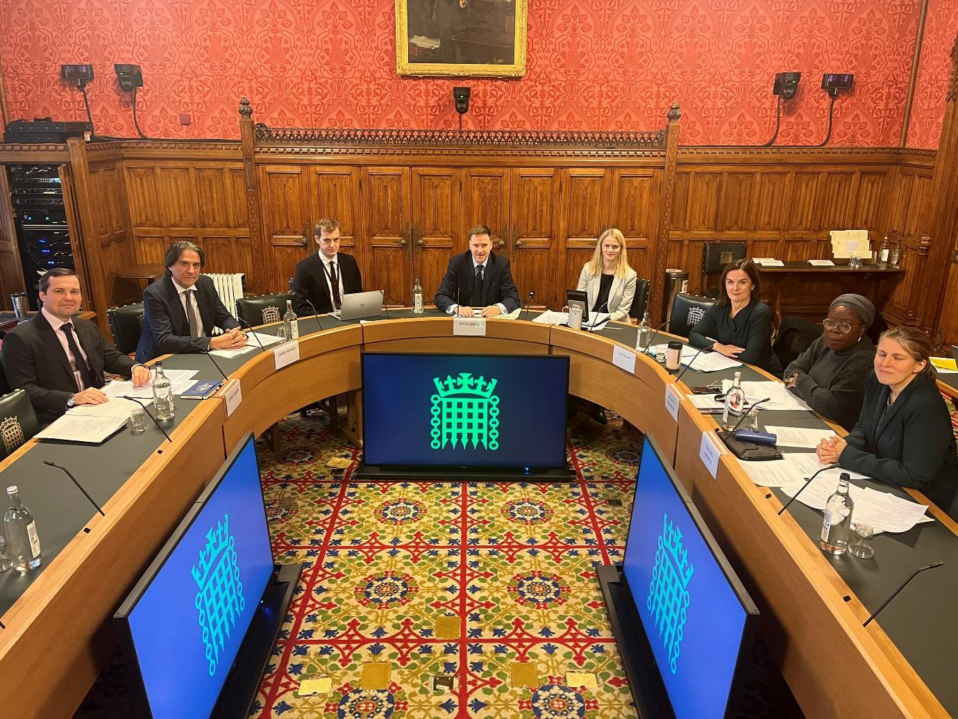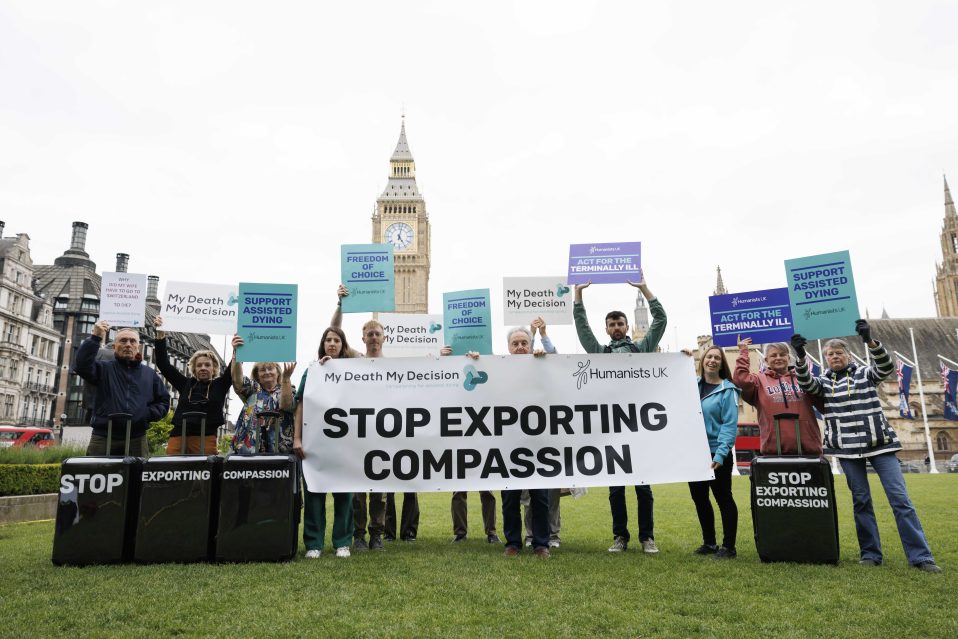 Today, the Human Rights (Joint Committee) took evidence from four leading barristers and professors on Human rights and assisted dying. Parliamentarians heard from a range of legal professionals that assisted dying laws are currently forcing people to end their lives early. My Death, My Decision is calling for a compassionate assisted dying law for people who are intolerably, incurably suffering.
Today, the Human Rights (Joint Committee) took evidence from four leading barristers and professors on Human rights and assisted dying. Parliamentarians heard from a range of legal professionals that assisted dying laws are currently forcing people to end their lives early. My Death, My Decision is calling for a compassionate assisted dying law for people who are intolerably, incurably suffering.
Data from the ONS released last year showed that people who are diagnosed with severe health conditions are considerably more likely to take their own lives. Several MPs in debates have shared evidence of loved ones taking their own lives. This includes MP Paul Blomfield, who told the story last year in a debate how his father took his own life after receiving a diagnosis for inoperable cancer.
When challenged about whether assisted dying in international jurisdictions can show a slippery slope, experts replied that in every jurisdiction where assisted dying has changed, this has been due to legal, justifiable and democratic changes.
Parliamentarians heard that internationally, where assisted dying laws exist with eligibility criteria and safeguards, they are fundamentally compliant with the Human Rights Convention.
Paul Bowen KC said: “Does having unbearable suffering give you certain rights you should be able to enforce? I think the answer is yes”. My Death, My Decision believes that any law in the UK should ensure that people who are experiencing unbearable suffering from a physical condition should have the right to end their lives.
Experts discussed the case of Debbie Purdy, who took her case to the UK courts and wrote a book titled “It’s Not Because I Want to Die”. Paul Bowen KC argued that for Debbie Purdy it wasn’t about the right to die, it was that she wanted to have the confidence that when the right time came she would be able to die with dignity, and it meant that once she had that confidence she would be able to live confidently.
The Health and Social Care Committee is currently running an inquiry into assisted dying. So far, they have published written evidence submitted to them as well as a summary of its investigations to date, including from the individual survey responded to by over 65,000 people. They have held oral evidence sessions with peers, experts and stakeholders from international jurisdictions where assisted dying is legal.
Trevor Moore, Chair of My Death, My Decision, said:
“Our current law is clearly not working. We are punishing compassionate acts, placing unwarranted trauma on already grieving families, and wasting police time.
The current inquiry into assisted dying must surely evaluate how the law in the UK is broken. No one should be forced to suffer against their will and we deserve the right to make choices about the end of our lives.”
Notes:
Members of the MDMD team, as well as individuals affected by the current law on assisted dying, are available upon request
For further comment or information, media should contact Nathan Stilwell at nathan.stilwell@mydeath-mydecision.org.uk or phone 07456200033.
My Death, My Decision is a grassroots campaign group that wants the law in England and Wales to allow those who are terminally ill or intolerably suffering the option of a legal, safe, and compassionate assisted death. With the support of over 3,000 members, we advocate for an evidence-based law that would balance individual choice alongside robust safeguards and finally give the people of England and Wales choice at the end of their lives.
Read more about our work with the Assisted Dying Inquiry: https://www.mydeath-mydecision.org.uk/2023/05/15/assisted-dying-inquiry-health-and-social-care-committee-takes-next-steps/
Watch the evidence session here: https://parliamentlive.tv/event/index/9a65aa72-d8ba-4dd0-9d81-7abe4614573e








Recent Comments